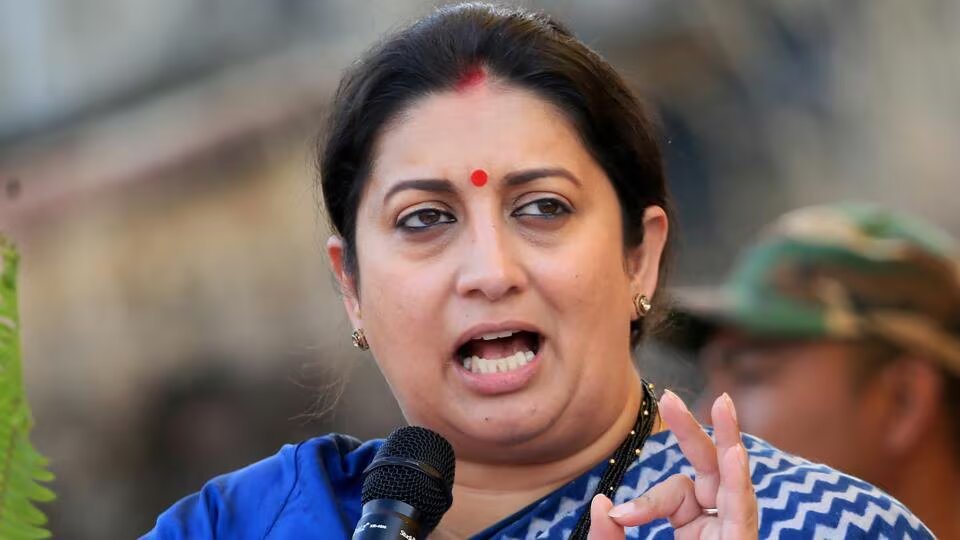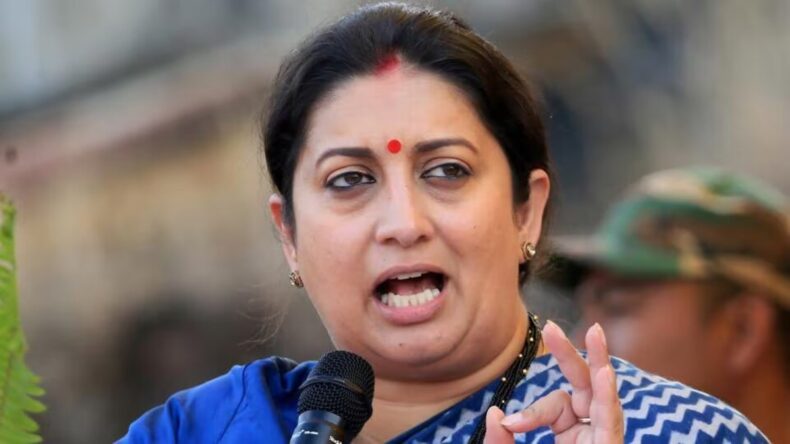Recently, religious freedom and the rights of minorities have become a hot issue in many countries, including India. The Ahmadiyya community, a minority Muslim sect, has become the focus of controversy in India due to their unique religious beliefs and status in the Muslim community. In the midst of this ongoing debate, Union Minister Smriti Irani made an important statement, saying that no Waqf council has the power to expel a community from a religion. This article explores the context of the Ahmadiyya controversy, analyses Smriti Irani’s statement, and discusses its implications for religious freedom in India.
Ahmadiyya controversy
The Ahmadiyya Community is a religious movement founded in the late 19th century in British India by Mirza Ghulam Ahmad. The movement identifies as Muslim but is considered controversial by mainstream Islamic sects due to its belief in Mirza Ghulam Ahmad’s prophecy, which is seen by some as a deviation from the traditional understanding of Islam. Muslims about the purpose of prophecy with the Prophet Muhammad.
In India, the Ahmadiyya community has faced challenges to its religious identity and legal status. Ahmadiyya leaders have voiced their grievances about being marginalized and discriminated against in the wider Muslim community. They struggle to be recognized as Muslims in the country and face legal obstacles related to their religious practices and places of worship.
Amid the Ahmadiyya dispute, Union Minister Smriti Irani has spoken out to address the issue of religious freedom and minority rights. In her statement, she unequivocally asserted that no Waqf council has the power to expel a community from a religion. This statement is significant as it emphasizes the importance of respecting the principles of religious freedom and equality in India.
The Waqf Council in India is responsible for the management and protection of the property and assets of Muslim religious organizations. They play an important role in matters related to mosques, cemeteries and other places of worship. The statement by Smriti Irani affirms that the Waqf Council must act within the framework of the law and respect the fundamental right of individuals to practice and spread their religion without fear of expulsion or persecution. Significance for religious freedom
Smriti Irani’s statement has profound implications for religious freedom in India. India is a diverse country with rich cultures, languages and religions. Freedom of religion is enshrined in the Constitution of India and is a fundamental right guaranteed to all citizens. Irani’s assertion reinforces the constitutional commitment to protect the religious rights of all individuals, regardless of their beliefs.

Religious freedom includes not only the right to practice one’s faith, but also the right to belong to a religious community of one’s choice. In supporting the rights of the Ahmadiyya community, Smriti Irani’s statement sends the message that all religious minorities in India should be treated with respect and dignity.
In addition, the statement reminds various religious bodies and organizations to avoid exceeding their limits and imposing their interpretations on others. It emphasizes the importance of coexistence and dialogue between different religious groups, promoting harmony and mutual respect.
The Ahmadiyya controversy in India has brought religious freedom and minority rights to the fore. Smriti Irani’s assertion that no Waqf council has the power to expel a community from a religion reaffirms the principles of religious freedom enshrined in the Constitution of India. It sends a powerful message about the importance of protecting the rights of religious minorities and promoting coexistence and understanding among diverse communities.
In a country as diverse as India, religious harmony is essential for the overall growth and development of society. Respecting and protecting the rights of all individuals, regardless of their religious beliefs, is an important step towards building a more inclusive and tolerant nation. Smriti Irani’s statement reiterates the need to uphold the values of religious freedom and equality, and to promote an environment where everyone can practice their faith without fear or discrimination.
As the debate over religious freedom continues, it is essential that policymakers, religious leaders and civil society work together to ensure that India remains a great society. pluralistic and tolerant society, where all people can live and practice their beliefs in peace, regardless of religion.












